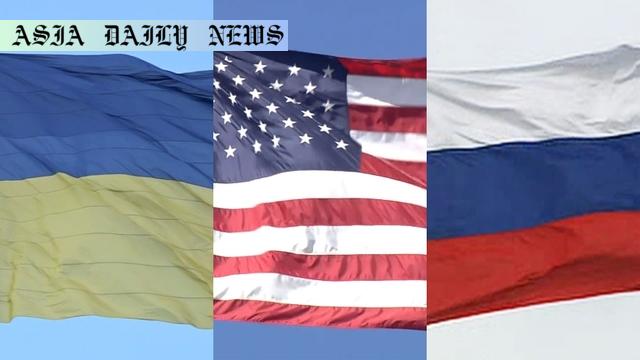Peace Talks: US President Donald Trump announces that the United States will mediate Russia-Ukraine ceasefire discussions in Munich.
- The US will mediate peace talks between Russia and Ukraine in upcoming meetings.
- Discussions are to occur during the Munich Security Conference and another meeting in Saudi Arabia.
- High-level officials from the US, Russia, Ukraine will spearhead these talks, aiming for a ceasefire.
- President Trump previously held a call with Vladimir Putin to set the stage for negotiations.

Introduction: A Bold Step for Peace
US President Donald Trump has announced that the United States will take the lead in mediating peace talks between Russia and Ukraine. This announcement comes amidst ongoing tensions and violent conflict in Ukraine, which has been a significant point of contention in international affairs for years. In his briefing at the White House, Trump revealed that plans are already underway, with high-level officials from the US, Ukraine, and Russia set to engage in talks during the Munich Security Conference this week.
The Munich Security Conference: A Strategic Platform
The Munich Security Conference, scheduled to begin on Friday, has long been a venue for addressing major global security concerns. Trump’s reference to this conference as the platform for initiating peace negotiations is both strategic and symbolic. By utilizing this international stage, the United States demonstrates its commitment to resolving the conflict and ensuring global stability. Trump emphasized that while he and Russian President Vladimir Putin would not attend these talks directly, high-ranking officials from all involved nations would attend to facilitate progress.
Looking Ahead: Saudi Arabia’s Role in Talks
In addition to the Munich conference, Trump mentioned another critical meeting slated for next week in Saudi Arabia. Although details about this meeting remain sparse, the involvement of the Kingdom of Saudi Arabia underscores the global significance of resolving the Ukraine conflict. Its strategic location and historical role in international diplomacy could make this meeting instrumental in advancing the peace process. Trump’s acknowledgment of Saudi Arabia suggests a united effort by multiple nations to broker a resolution on this enduring issue.
Challenges on the Road to Peace
Despite the optimism surrounding these announcements, significant challenges lie ahead. Relations between Ukraine and Russia have been fraught with war, territorial disputes, and political mistrust since 2014. Attempts to mediate a ceasefire have often fallen short in previous years due to unfulfilled agreements or contradicting interests. Trump’s efforts signal a new approach but will require substantial cooperation among the parties involved. The intricacy of the crisis demands consistent dialogue, compromises from polarized sides, and endorsements from the global community.
The Significance of Trump’s Mediation
President Trump’s attempt to mediate the Russia-Ukraine conflict could redefine his legacy in foreign policy. While much of his international relations record has been scrutinized, this initiative presents an opportunity to portray the United States as a peacemaking power. Moreover, it reflects a shift in the US’s global engagement, which has often involved military interventions rather than constructive diplomacy. Should these talks succeed, Trump’s administration could take credit for playing a pivotal role in achieving one of the most critical resolutions of modern conflicts.
Conclusion: A Hopeful Yet Uncertain Path Forward
The world watches anxiously as these peace talks unfold. The upcoming discussions in Munich and Saudi Arabia could mark a turning point in the Russia-Ukraine war, bringing hope to those affected by years of violence. However, it is imperative to approach this development with cautious optimism, recognizing the complexities at play. While Trump’s announcement is promising, the ultimate outcome will depend on the commitment and concessions of all involved parties. The journey toward peace is far from over, but the path has, at least, been set in motion.



Commentary
An Ambitious Attempt for Peace
President Donald Trump’s announcement of US-mediation efforts in the ongoing Russia-Ukraine war is undeniably a bold move. At its core, this step represents a significant shift in the approach of the US administration, steering away from military interventions and toward active diplomacy. Trump’s assertion that officials will take up this monumental task at the Munich Security Conference highlights the gravity and immediacy of the situation. It is heartening to see an initiative promoting dialogue instead of further escalations or silence.
Global Implications of Success
Should these negotiations yield tangible results, the benefits would extend beyond Ukraine and Russia. A resolution could stabilize the European region, reduce tensions between NATO and Russia, and even set a precedent for the resolution of other global conflicts. Trump’s leadership in this effort could cement the US’s role as a mediator and align with a broader global desire for peaceful resolutions. However, success is not guaranteed, as the complexities of this conflict have defied solutions for nearly a decade.
Challenges Worth Addressing
Yet, one cannot overlook the criticisms and potential hurdles related to these developments. Trump’s announcement, while optimistic, lacks details about the strategies to bring both sides to the table. Achieving a ceasefire or a comprehensive peace agreement will demand more than high-level meetings; it will necessitate trust-building measures and compromises from both Ukraine and Russia. How the US navigates these challenges will not only determine the success of these talks but also define its role as a global leader in diplomacy.
Conclusion: A Bold Yet Uncertain Initiative
Overall, Trump’s announcement sparks a glimmer of hope in a world yearning for peace. The prospect of finally resolving the Russia-Ukraine conflict could transform lives, mend relationships, and restore stability to a tumultuous region. While the journey toward achieving this outcome remains fraught with numerous challenges, the effort to mediate stands as a testament to the resilience of diplomacy and international collaboration. The world will be watching closely, with cautious optimism, as new chapters of this historic process unfold.